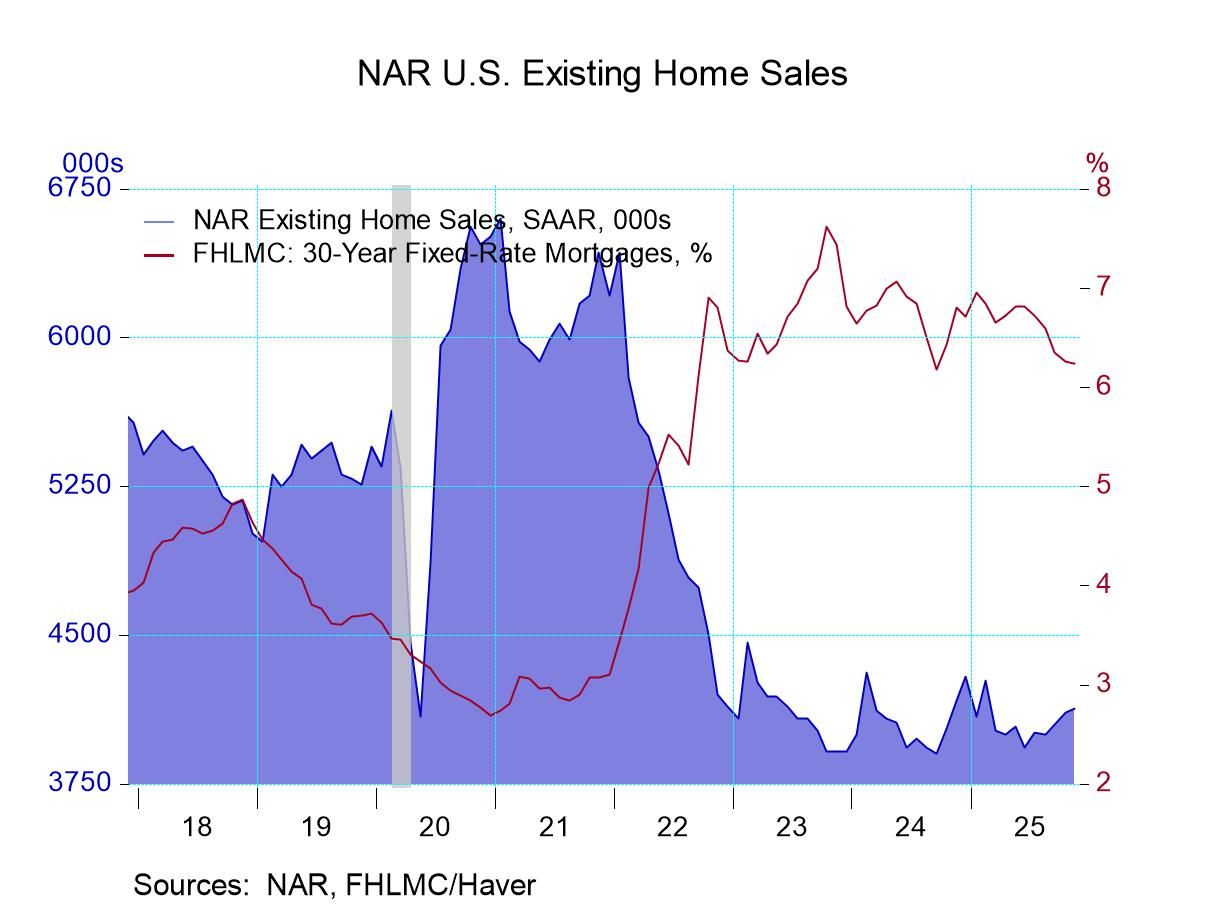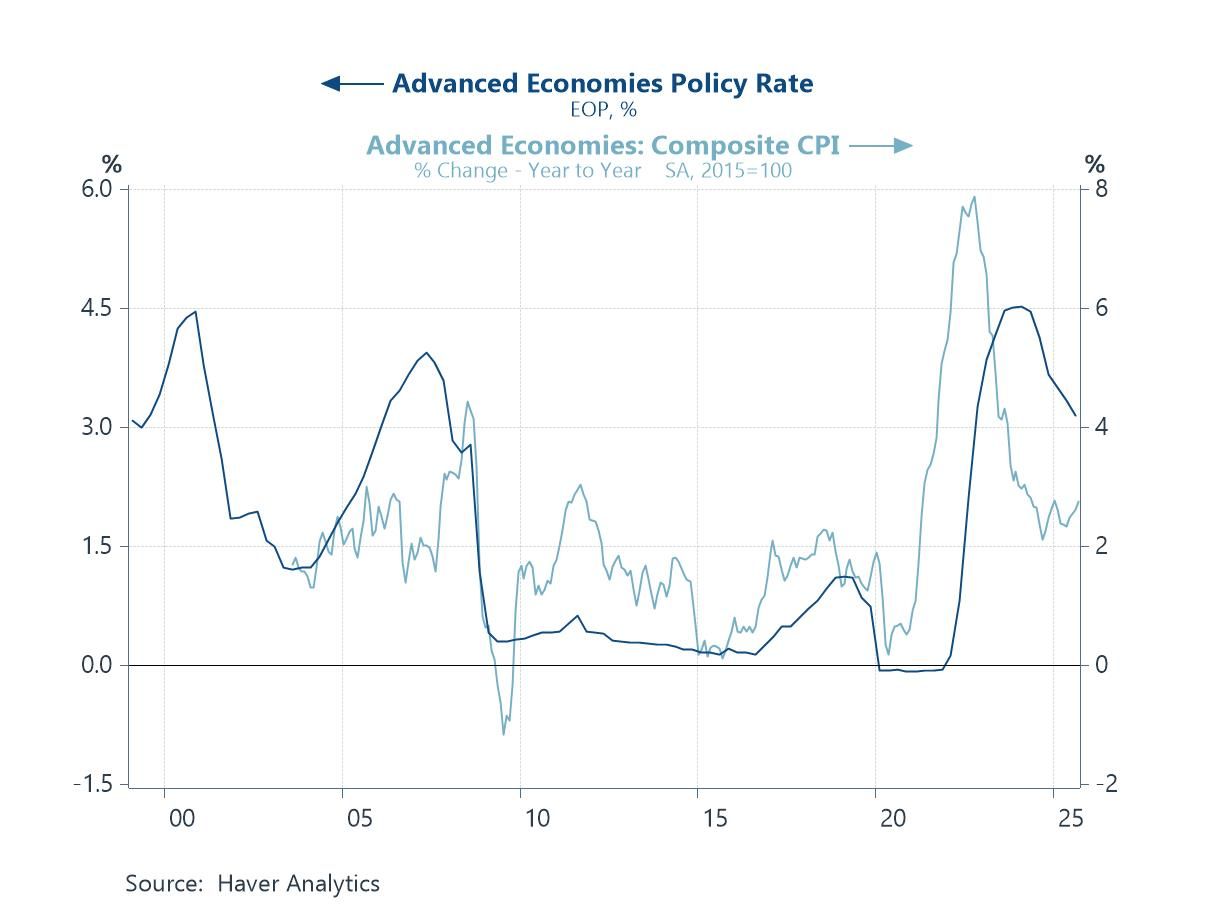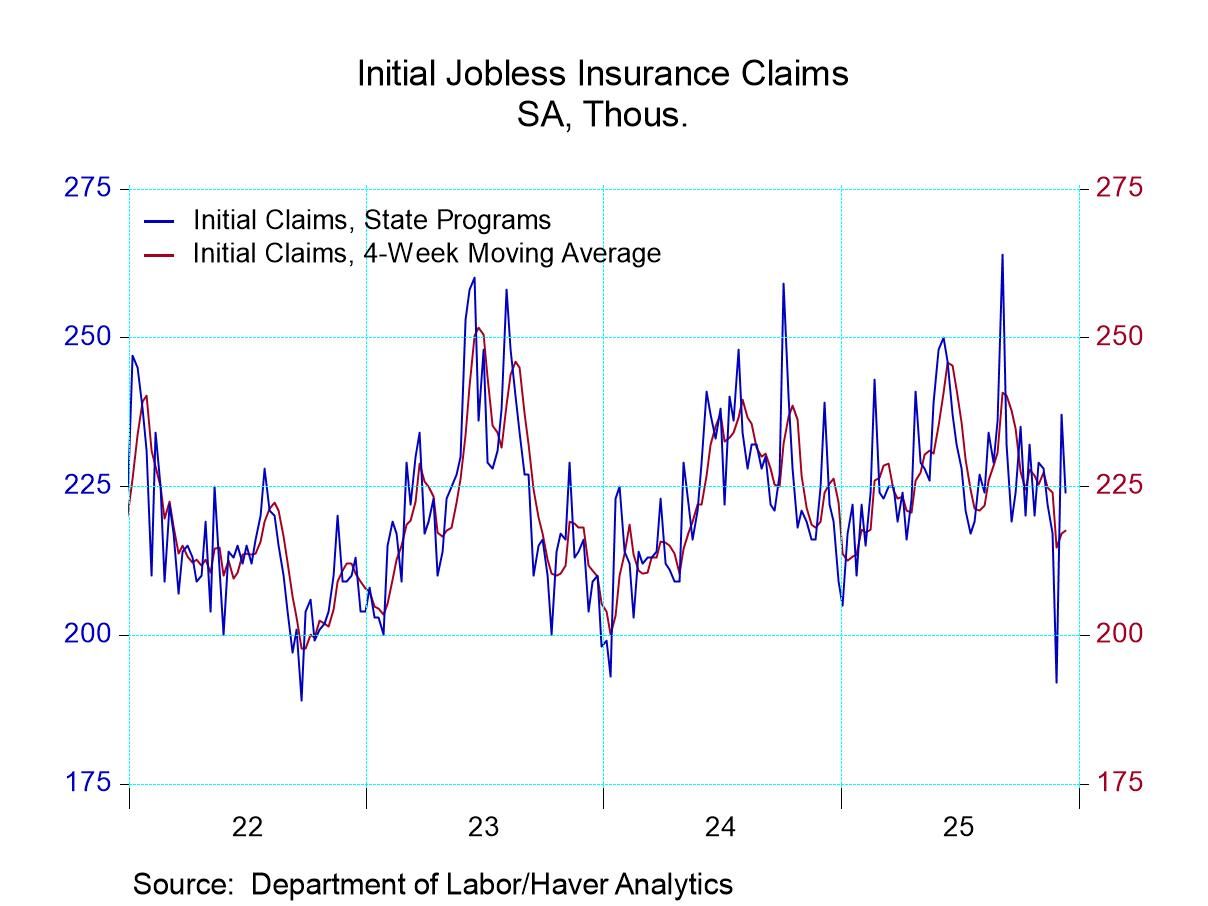 Global| Oct 06 2003
Global| Oct 06 2003July Retail Sales in the Euro-zone Exceed Consensus
Summary
Contrary to a consensus estimate of a 0.5% decline, the volume of retail sales, excluding autos, in the Euro-zone actually rose in July, albeit, at a very slight gain of 0.11%. The consensus estimate of a decline appears to have been [...]
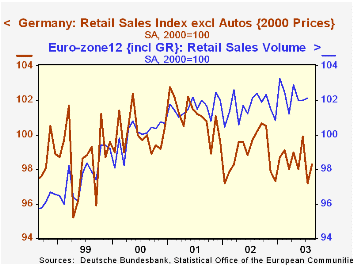
Contrary to a consensus estimate of a 0.5% decline, the volume of retail sales, excluding autos, in the Euro-zone actually rose in July, albeit, at a very slight gain of 0.11%.
The consensus estimate of a decline appears to have been influenced by a sharp decline in the volume of sales excluding autos in Germany in July. (Reports of German retail sales precede those of the whole Euro-zone by about a week.) However, retail sales in the rest of the Euro-zone held their own or improved enough to overcome the decline in German sales.
The August data that were released last week for German retail sales excluding autos, showed a 0.9% rise and suggest that Germany may be beginning to join the rest of the Euro-zone where sales have improved.
| Volume of Retail Trade (2000=100) | Aug 03 | July 03 | June 03 | July 02 | M/M | Y/Y | 2002 | 2001 | 2000 |
|---|---|---|---|---|---|---|---|---|---|
| Euro-zone | n. a. | 102.12 | 102.02 | 102.13 | 0.11 | 0.00 | 101.6 | 101.6 | 100.0 |
| Germany | 99.4 | 98.5 | 101.7 | 100.9 | -2.67 | -2.38 | 100.0 | 101.5 | 100.0 |
by Carol Stone October 6, 2003
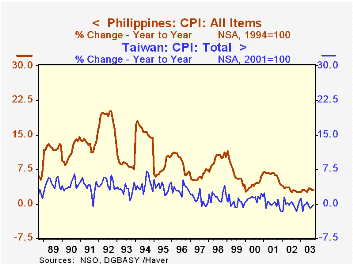 As in many other nations, inflation is running low in Taiwan and the Philippines, which both reported their September CPI data today. Taiwan, in fact, is experiencing mild deflation, while in the Philippines, the year-on-year inflation rate is maintaining a range that’s the lowest since early 1988.
In Taiwan, food prices have shown little change for several years, housing costs are falling and clothing prices, though historically low, are drifting upward. Housing costs are declining, which is likely due to falling prices for appliances and furniture. Turns in the rate of price change frequently coincide with swings in petroleum prices.
In the Philippines, inflation has eased in several sectors. Food and clothing price inflation is trending consistently lower, serving as a main component of the overall slowing in consumer prices. Housing costs have recently trended right along with the total CPI, and service price inflation runs consistently faster than the total, although it is relatively steady. A separate category “fuel, light and water” has shown an accelerating 12-month pace, corresponding to recent oil price patterns.
As in many other nations, inflation is running low in Taiwan and the Philippines, which both reported their September CPI data today. Taiwan, in fact, is experiencing mild deflation, while in the Philippines, the year-on-year inflation rate is maintaining a range that’s the lowest since early 1988.
In Taiwan, food prices have shown little change for several years, housing costs are falling and clothing prices, though historically low, are drifting upward. Housing costs are declining, which is likely due to falling prices for appliances and furniture. Turns in the rate of price change frequently coincide with swings in petroleum prices.
In the Philippines, inflation has eased in several sectors. Food and clothing price inflation is trending consistently lower, serving as a main component of the overall slowing in consumer prices. Housing costs have recently trended right along with the total CPI, and service price inflation runs consistently faster than the total, although it is relatively steady. A separate category “fuel, light and water” has shown an accelerating 12-month pace, corresponding to recent oil price patterns.
These price trends are important for workers in the Philippines, where nonagricultural wages are governed by a “legislated daily wage rate”. Since it is changed only infrequently, lower inflation provides significant help to Philippine consumers, compared with periods of double-digit inflation as recently as 1999. Earnings of Taiwanese workers have been virtually flat since 1999. But the slightly downward drift to CPI inflation keeps the purchasing power of those workers’ incomes on an even keel.
| Year/Year % Changes | Aug 03 | July 03 | June 03 | 2002 | 2001 | 2000 |
|---|---|---|---|---|---|---|
| Taiwan | ||||||
| CPI | -0.2 | -0.6 | -1.0 | -0.2 | 0.0 | 1.3 |
| Nominal Earnings | N.A. | N.A. | -0.2 | -0.3 | -1.5 | 2.6 |
| Philippines | ||||||
| CPI | 2.9 | 3.0 | 3.3 | 3.1 | 6.1 | 4.3 |
| Nominal Earnings | N.A. | N.A. | 0.0* | 10.3 | 7.2 | 12.3 |


